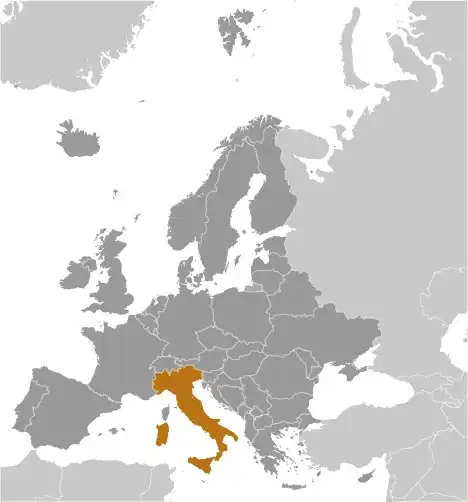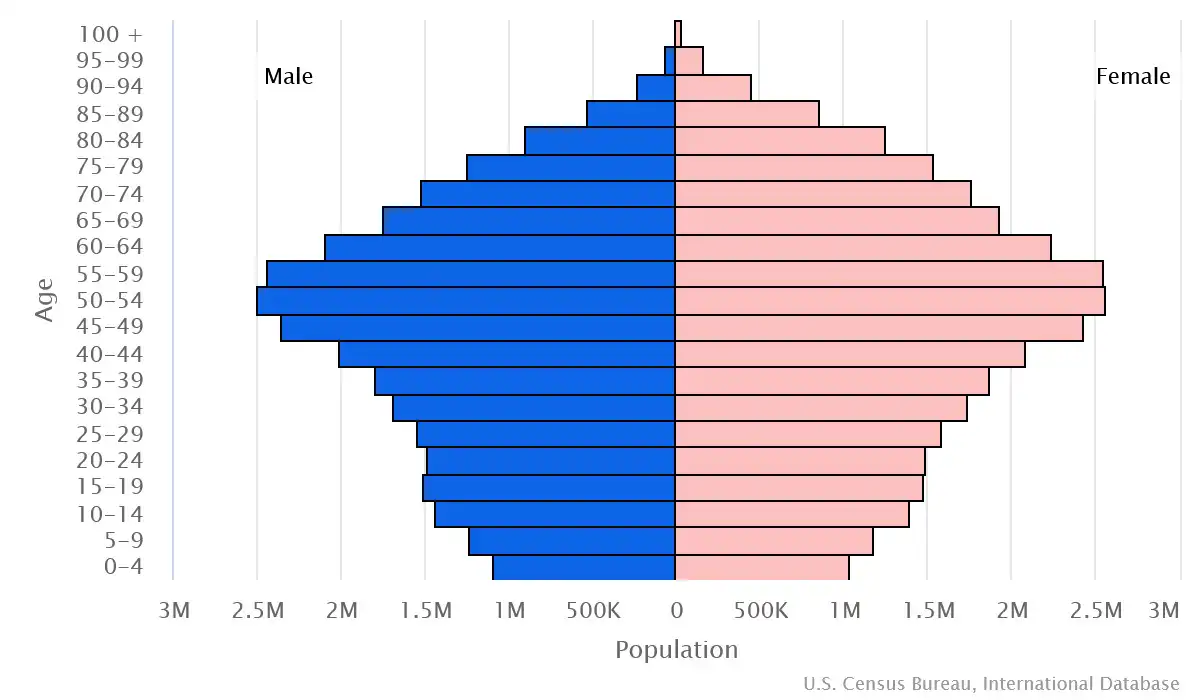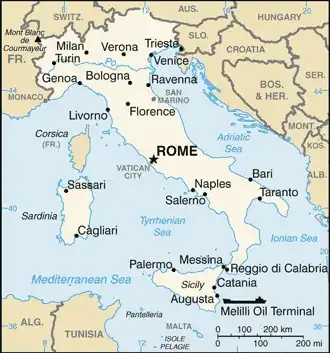
Italy Country Profile
Key Facts of Italy

| Government type: | parliamentary republic |
| Capital: | Rome |
| Languages: | Italian (official), German (parts of Trentino-Alto Adige region are predominantly German-speaking), French (small French-speaking minority in Valle d'Aosta region), Slovene (Slovene-speaking minority in the Trieste-Gorizia area), Croatian (in Molise) |
Italy Demographic Data
Ethnic Groups in Italy
Religious Groups in Italy (2020 est.)
Age pyramid of Italy

Italy Economy Statistics
Economic overview of Italy
core EU economy; strong services, manufacturing, and tourism sectors; sustained recovery in post-COVID inflationary environment; high public debt levels; increasing poverty levels particularly in poorer south; strong exports to EU and US partners
Italy Real GDP (purchasing power parity) in Billion $
Italy Real GDP per capita in $
Italy's Exports & Imports in billion $
Top 5 Import Partnerin 2022 (40%) of Italy
Top 5 Import Commodities in 2022 of Italy
- natural gas 💨
- crude petroleum 🛢️
- cars 🚗
- packaged medicine 💊
- garments 👕
Top 5 Export Partnerin 2022 (42%) of Italy
Top 5 Export Commodities in 2022 of Italy
- packaged medicine 💊
- refined petroleum ⛽
- garments 👕
- cars 🚗
- vehicle parts/accessories 🛠️🚗
Geography of Italy
Map of Italy

Land and Water Distrubtion of Italy
Natural Resources of Italy
- coal ⚫
- antimony 🏺
- mercury ⚗️
- zinc 🔩
- potash 🪙
- marble 🪨
- barite 🪨
- asbestos 🏭💨
- pumice 🪨
- fluorspar 💎
- feldspar 🪨
- pyrite (sulfur) 🧪
- natural gas and crude oil reserves 🛢️
- fish 🐟
- arable land 🌱
Climate inItaly
predominantly Mediterranean; alpine in far north; hot, dry in south
History of Italy - a Summary
Italy became a nation-state in 1861 when the regional states of the peninsula, along with Sardinia and Sicily, were united under King Victor EMMANUEL II. An era of parliamentary government came to a close in the early 1920s when Benito MUSSOLINI established a Fascist dictatorship. His alliance with Nazi Germany led to Italy's defeat in World War II. A democratic republic replaced the monarchy in 1946, and economic revival followed. Italy is a charter member of NATO, as well as the European Economic Community (EEC) and its successors, the EC and the EU. It has been at the forefront of European economic and political unification, joining the Economic and Monetary Union in 1999. Persistent problems include sluggish economic growth, high youth and female unemployment, organized crime, corruption, and economic disparities between southern Italy and the more prosperous north.
